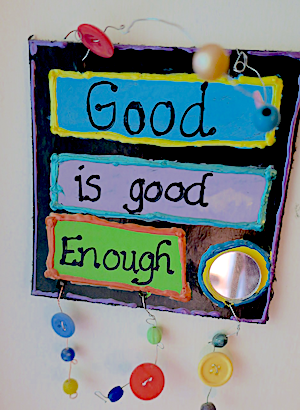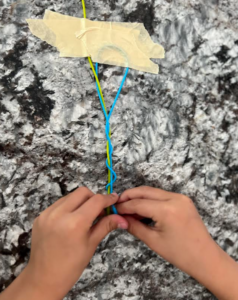7 Principles of a Heart-Centered Classroom
By Regie Routman
A humane approach to teaching, learning, and living well goes a long way to making all aspects of our lives more generous, authentic, and joyful.
When we prioritize supporting, guiding, and celebrating learners ahead of required standards and curriculum, we are teaching readers, writers, and thinkers – unique human beings with vast potential; we are not just teaching reading, writing, content, and test taking.
In my latest book, The Heart-Centered Teacher: Restoring Hope, Joy, and Possibility in Uncertain Times, I define what it means to lead a heart-centered life:
It is that peaceful state where we live our core values with compassion, generosity and authenticity – even in the midst of sadness and strife. In a heart-centered life, we take care of ourselves and others as we seek to establish and sustain loving kindness, trusting relationships, and daily gratitude. We have respectful conversations where we “see” and hear the “other,” not just with our minds but with our hearts. In a heart-centered life, teaching, learning and living are interwoven and seamlessly integrated. We become our truest selves. (page xx)
These are not idle words. In spite of the challenges we have faced and continue to face from the pandemic, toxic politics, work demands, ongoing stress, and issues outside of our control, we can still find some equilibrium, meaning – and even joy – in our daily lives. But we must intentionally seek it!
What follows are principles and actions we can embrace as we strive to live a more heart-centered life, in and out of the classroom. To that end and based on the Washington Post daily briefing of most important things, THE SEVEN, which I enjoy online, here are my seven things for focusing on what’s most important. (All of what I discuss in this article is elaborated upon in The Heart-Centered Teacher and the free website which accompanies it.)
1. “Seeing” our loved ones and those we hold dear
Through childhood and my teens, I don’t believe I was truly “seen” by my parents or teachers. My parents loved me and I felt loved, but looking back that love revolved around my meeting their expectations of being the “good girl” who followed the rules and didn’t disappoint them.
In school it was much the same. I got excellent grades, was polite and soft spoken, and didn’t raise my hand much to share my thinking. Just as it is for our students and family members, not being “seen” limits and delays personal and intellectual growth. So what exactly does it mean to “see” our loved ones and those we hold dear?
► Respect and affirm learners’ language, culture, and identity.
► Notice and emphasize learners’ strengths and assets before focusing on needs.
► Let go of differences as deficits.
► Be deliberate about finding ways to get to know learners – conferences, interviews, conversations, surveys, quick writes, communications with families.
► Incorporate learners’ interests into literacy, curriculum, content areas, and standards.
2. Holding high expectations for all learners
In the opening story of The Heart-Centered Teacher I tell write about Ted, a 53-year-old adult I tutored in reading, twice weekly at his request, after he’d lost his job during the pandemic. With no technology except our phones, I was able to teach this up-and-coming reader how to read and to enjoy reading. I began with getting to know him, finding out and utilizing his interests and strengths, giving him choices in what we would read, and holding high expectations for him. I began with the assumption that Ted was smart and would succeed; failure to teach him was not an option.
So it must be for our students and all children. Sadly, in many decades of working in schools, almost all of them in high-needs, under-resourced neighborhoods, I have never been in a school where expectations are too high; without exception, expectations – on the part of adults for what students can accomplish – are low.
► Examine our belief systems about learning to read and write to ensure they align with research and principled practices.
► Find out each child’s special gifts and interests and capitalize on them.
► Provide scaffolds to ensure learner’s success (See number 5.)
► Honor learners’ language, cultural identity and heritage, and find ways to bring those assets into daily reading, writing, speaking, and creating.
► See and honor possibilities students see even if they’re not our possibilities.
► Read aloud complex, high interest texts, not just texts at their reading level. Students often understand texts they listen to even as they cannot yet read such texts on their own.
► Do not use trauma as an excuse for holding low expectations.
3. Creating and sustaining a culture of trust, respect, generosity, and celebration
Especially these days, when life is so uncertain and unpredictable for so many, creating a “belonging” culture of stability where learners feel valued and safe – physically, emotionally, and educationally – is a necessity. Making our classrooms and schools a sanctuary can be a lifesaver for students who lack security in housing, relationships, food, and much more.
 ► Show kindness daily.
► Show kindness daily.
► Develop routines and rituals with students.
► Acknowledge and celebrate the diversity of children, families, and cultures.
► Value and celebrate efforts as much as successes.
► Give second chances whenever possible, e.g., extend a due date; provide opportunities to redo an assignment.
► Provide more choice in reading and writing texts and in “showing what they know.”
► Adopt a mindset of “Good is good enough” as students are in the novice and apprentice stage as learners on their way to becoming expert and excellent.
4. Valuing and seeking stories
A storytelling culture – in the classroom, school, and home – is a happy place. Everyone loves a good story. Stories – ours, theirs, history, science, nonfiction, fiction, and other genres – can be entertaining, validating, provocative and inspiring, and introduce us to all kinds of literature and information that can enliven and widen our knowledge, perspective, and sense of self and possibility.
Ensure reliable narrators for the stories, that is, that students get to tell their own stories and that news, historical, and scientific articles are reality and fact-based (not alternative facts.)
► Read aloud every day – picture books, fiction, news, texts of all kinds in multiple formats.
► Establish an equitable and accessible classroom library with students. For the school library, involve students in making recommendations for purchase of new books and organizing the collection and displays to maximize student interest and engagement.
► Read aloud every day, several times a day; include picture books regardless of age of the students.
► Establish equitable and accessible classroom libraries; include texts that are class-authored and student-authored.
5. Providing scaffolds
 “A scaffold is an instructional practice where a teacher gradually removes guidance and support as students learn and become more competent. Support can be for content, processes, and learning strategies.” (via Google.)
“A scaffold is an instructional practice where a teacher gradually removes guidance and support as students learn and become more competent. Support can be for content, processes, and learning strategies.” (via Google.)
Providing suitable scaffolds and supports is a great motivator for encouraging learners to put forth best efforts. If I know in advance that I can count on a loved one, colleague, or competent other to show, guide, and give me hands-on help, I am more likely to make a good faith attempt.
► Do more demonstrations along with more daily, shared and guided experiences.
► Prioritize a whole-part-whole mindset approach to teaching and living, not skills-in-isolation.
► “Put the language in their ears” is my go-to strategy – not asking more questions – when a child doesn’t respond. “How about if we say it this way?”. . . “Or you might try. . . “ or “Put what I just said (or a peer said) in your own words. I’ll help you.”
► Structure more small group times where we can listen in, hear students’ thinking, observe behaviors in a group, and see where more support – or less – are needed.
► Employ more partner reading and other small group collaborations.
► Use one-on-one and public conferences often.
6. Engaging in ongoing, professional learning
After five decades of teaching, demonstrating, coaching, and collaborating with teachers, principals, and educators at all levels, I can say with certainty that without excellent, embedded, professional learning, sustainable, schoolwide change will not happen.
And without a whole school of dedicated and knowledgeable professionals, we will continue to shortchange students and teachers for what’s possible in academic and personal achievement and in attaining a thriving school culture.
► Be cautious about over-relying on commercial programs, the best of which provide a workable framework and guide.
► Do not over rely on research or “miracle cures.” Use evidence-based research judiciously. Teachers who are informed, knowledgeable, and caring are capable of making smart decisions related to their students.
► Apply practices and strategies that support learners to become more independent, self-monitoring, self-correcting, goal setting learners.
7. Facilitating meaningful conversations
I am writing this last section having just had an hour long conversation via Zoom with my younger granddaughter, who is a junior in college. We affectionately call these talks “coffee and conversation.” Today we talked about the uncertain state of the world, feeling overwhelmed, how we can make a worthy difference, movies we’d seen, what we’re reading, enjoying being with friends, scrapbooking, and more.
These conversations, now established and beloved rituals, have been going on since early high school days as a way to ensure that our talk moves beyond the superficial and mundane to deep conversations that matter to us both.
Think of “curriculum as conversation.” Our level of discussion, questioning, learning, and taking action depend on the quality, accuracy, and depth of the texts we and our students are reading, viewing, hearing, writing, accessing, and debating.
► Set up conversational structures that ensure we “hear all the voices.”
► Work to keep libraries free thinking zones for all the voices.
► Adapt curriculum so it is culturally relevant for the actual students we are teaching.
► Actively listen – listen first to hear and understand, not to respond.
► Study and become actively involved in issues that impact our local and national worlds.
► Read and write for real-world audiences and purposes. See the extensive lesson plan on Environmental Citizenship and the Responsibility of Citizens in Literacy Essentials for facilitating high level conversations, scaffolded experiences, and deep learning.
 This last action is crucial. Living well and making the world – even our most local one – a little bit better than we found it is a notable accomplishment worth embracing. Then we are going a long way to ensure that what we do and are asking our students and loved ones to do will result in personal and professional growth, gratitude, generosity, and – even – sparks of greatness.
This last action is crucial. Living well and making the world – even our most local one – a little bit better than we found it is a notable accomplishment worth embracing. Then we are going a long way to ensure that what we do and are asking our students and loved ones to do will result in personal and professional growth, gratitude, generosity, and – even – sparks of greatness.
Regie Routman is the author, most recently, of The Heart-Centered Teacher: Restoring Hope, Joy, and Possibility in Uncertain Times. (Routledge/Eye On Education 2024.) She is a mentor teacher and coach, who works and presents virtually and conversationally, side by side with teachers, principals and educators at all levels in diverse schools, districts, and provinces. For more information about her work and her many books and resources, see regieroutman.org.


Good thoughts, for certain. Although, I kind of disagree with "Value and celebrate efforts as much as successes." I think it is important to celebrate success more than effort. This is the real world that students will enter one day. Effort is rarely celebrated, when there is no success. It is best to prepare their minds for that now, rather than lead them down the path of potential culture shock.
ReplyDelete